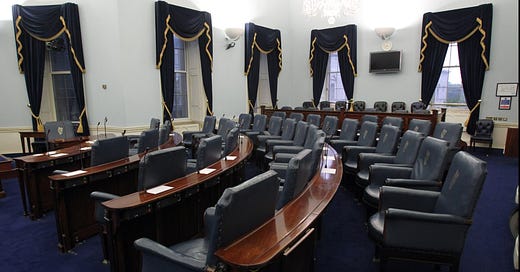Seanad General Election 2025
It's not really a general election, and it's not very democratic!
The Oireachtas website has a very good explainer about the upcoming Seanad elections. They, unfortunately, describe it as a “general election” It is nothing, barely even resembling a general election or even democratic!
Seanad elections have to take place within 90 days of the dissolution of the Dáil. This means that the new Dáil will have assembled befo…
Keep reading with a 7-day free trial
Subscribe to The Irish Politics Newsletter to keep reading this post and get 7 days of free access to the full post archives.




